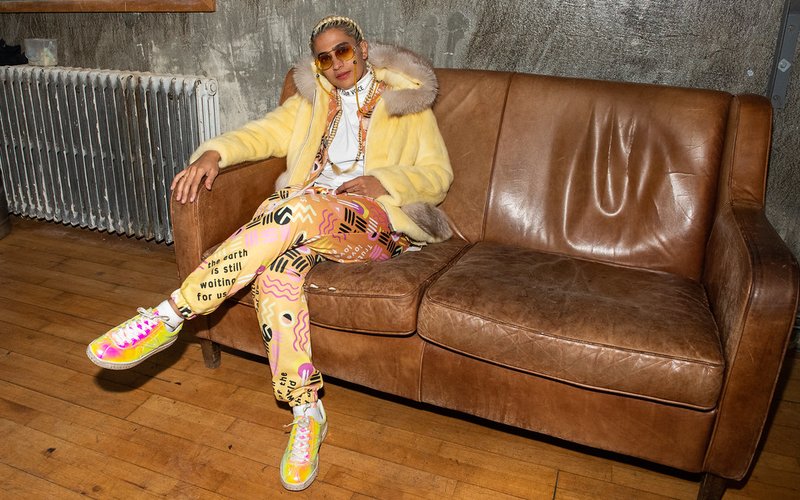
KEXP's Sound & Vision airs every Saturday morning from 7-9 AM PT, featuring interviews, artistry, commentary, insight, and conversation to that tell broader stories through music, and illustrate why music and art matter. You can also hear more stories in the new Sound & Vision Podcast. New episodes are out every Tuesday. Subscribe now.
Listen to the podcast version of this story at the 22:40 mark on the player below.
Women swept the top five categories of Grammys on Sunday, with Billie Eilish taking home awards for Album of the Year, Record of The Year, Song of the Year and Best New Artist. Lizzo won Best Pop Solo Performance, but the recognition of these two female performers didn’t mask the controversy hanging over “music’s biggest night.”
Scandal had embroiled the Recording Academy just over a week before the Grammy Awards, their most public event. The heart of the controversy is the question of how women are treated by the Academy, which is typified in the saga of now former Academy CEO Deborah Dugan.
Dugan became the head of the Academy in August, replacing former CEO Neil Portnow, who famously made the controversial comment that female artists should “step up” if they want equal representation in the industry.
Then, 10 days before the ceremony, the Academy placed Dugan on administrative leave. She was accused of having a bullying management style. Dugan, however, filed a complaint alleging sexual harassment and voting irregularities regarding the Grammy Awards – enabled by the “boys’ club' mentality and approach to governance at the Academy.”
“My personal take is that she was going to reveal something that would have threatened the privilege of those already in place and also threatened the sort of the permissible behavior of a boys will be boys culture,” says Madame Gandhi, a musician, activist and voting member of the Recording Academy.
Gandhi has been receiving regular updates on the CEO of the Recording Academy. “It really does feel like this tone of older men kicking and screaming that someone is challenging their privilege,” she says.
Sound & Vision host Emily Fox spoke with Gandhi about Dugan’s ouster and ways the Recording Academy can work towards gender parity.
On changes Gandhi would like to see at the Recording Academy:
I think in terms of gender parity, the kinds of things that I would love to see is more diverse leadership at the top. This year alone, I felt really encouraged by the few women members who I'm friends with at the Grammys, just by them teaching me about how to be the best voting member I can be or introducing me to other folks in the industry and mentoring me a bit. I find that more challenging with men just from a connection standpoint and maybe also sometimes feeling concerned about their motivation. And then I think finally, I would love to see the Grammys continue to fund initiatives that gets more women in the studios and increasing their technical skill set.
On ways to get more women in the music industry:
I think the first thing is recognizing that our entire culture still markets to young women and girls, that our value comes from our looks instead of our skill set. There is a cultural shift that has to happen, where we allow women to step into the fullest of their skill sets. I think the second thing is visibility, I try my best even if I don't love the beat that I just made, of posting it on my Instagram so that people really see what it looks like. This is me opening my laptop and making the beat on a plane or on my desk and that shows people that that you can do it, too.
On former Recording Academy CEO Neil Portnow’s comment that women need to “step up” to gain equal representation:
Sound & Vision host Emily Fox spoke with the Seattle native about growing up the child of Seattle's earliest hip hop groups and moving to Israel.
Sound & Vision host Emily Fox spoke with Matthew Campbell, co-author of the article "The Dark Side of K-pop: Assault, Prostitution, Suicide, and Scandals" about sexual assault in the K-pop industry.
Kiran Gandhi talks activism, feminine energy, using art for social change, and her new EP 'Visions.'